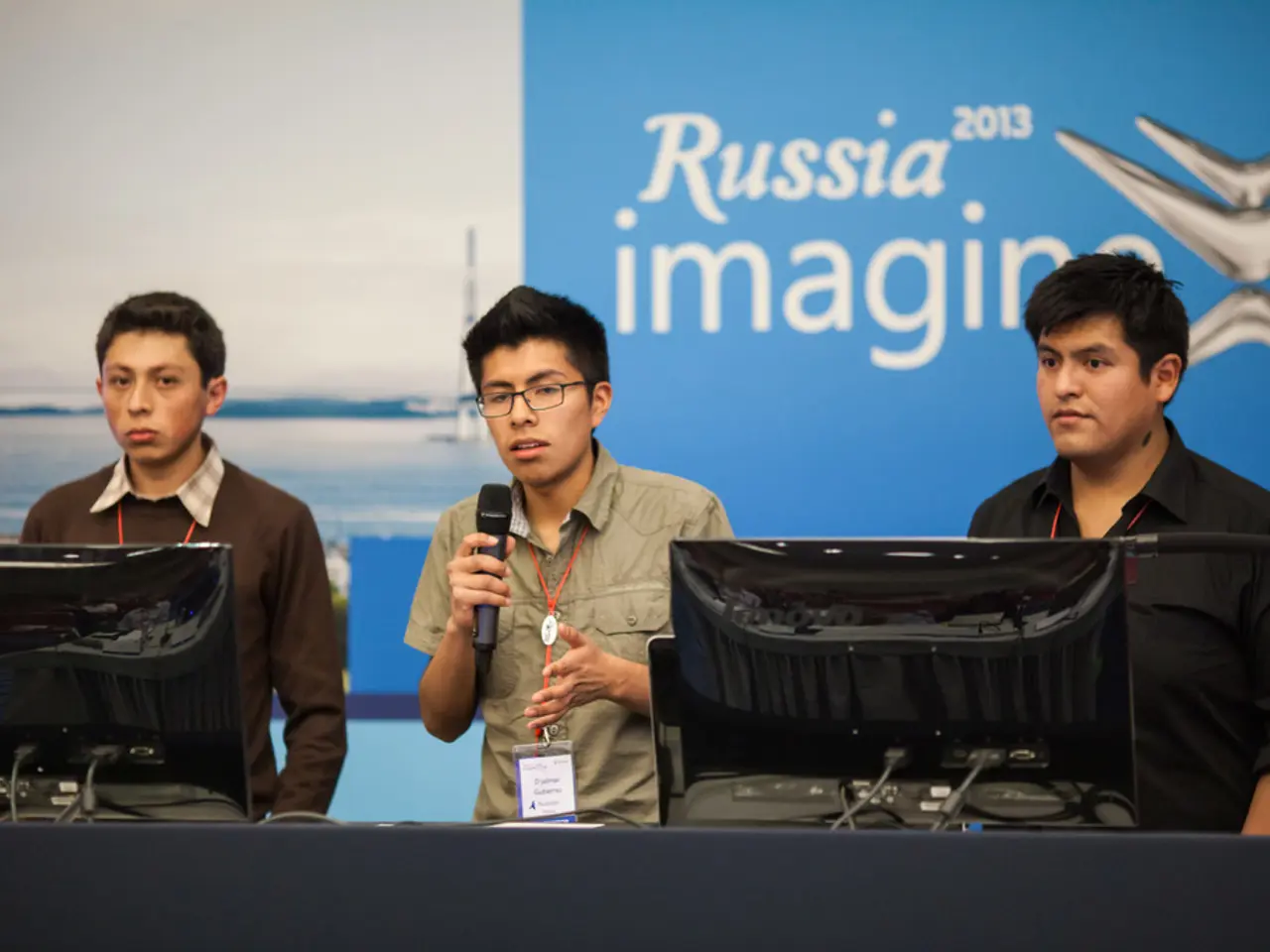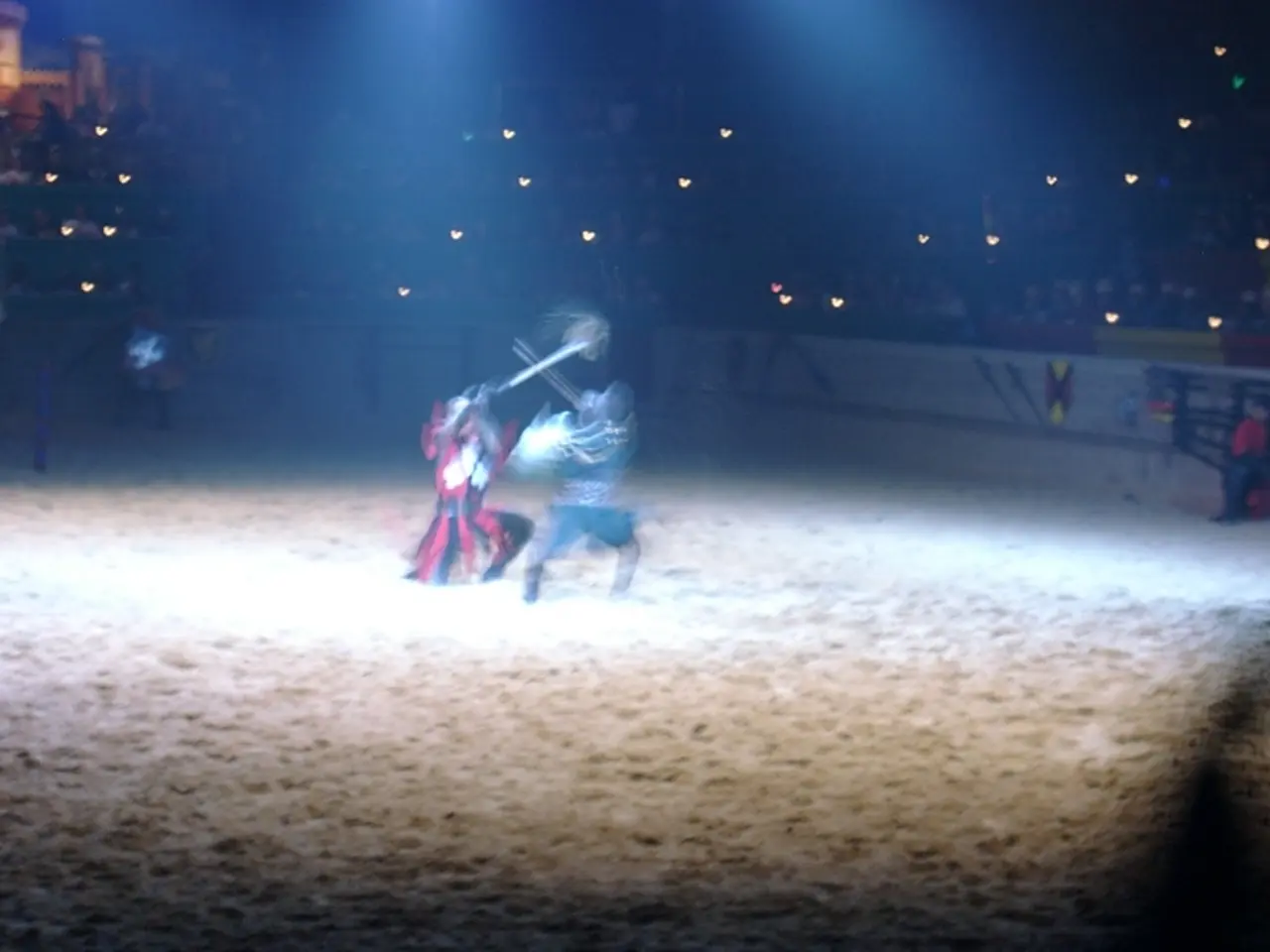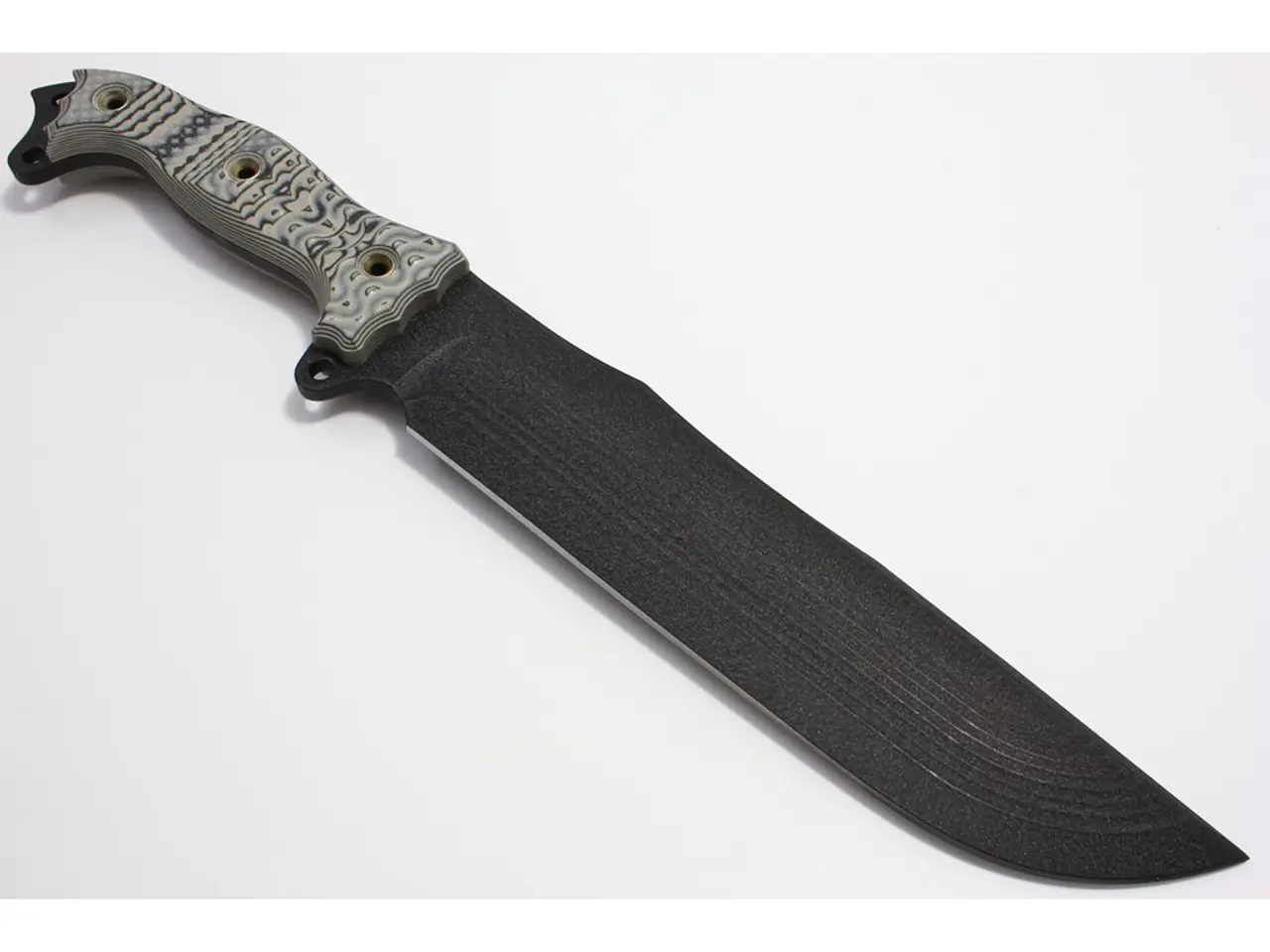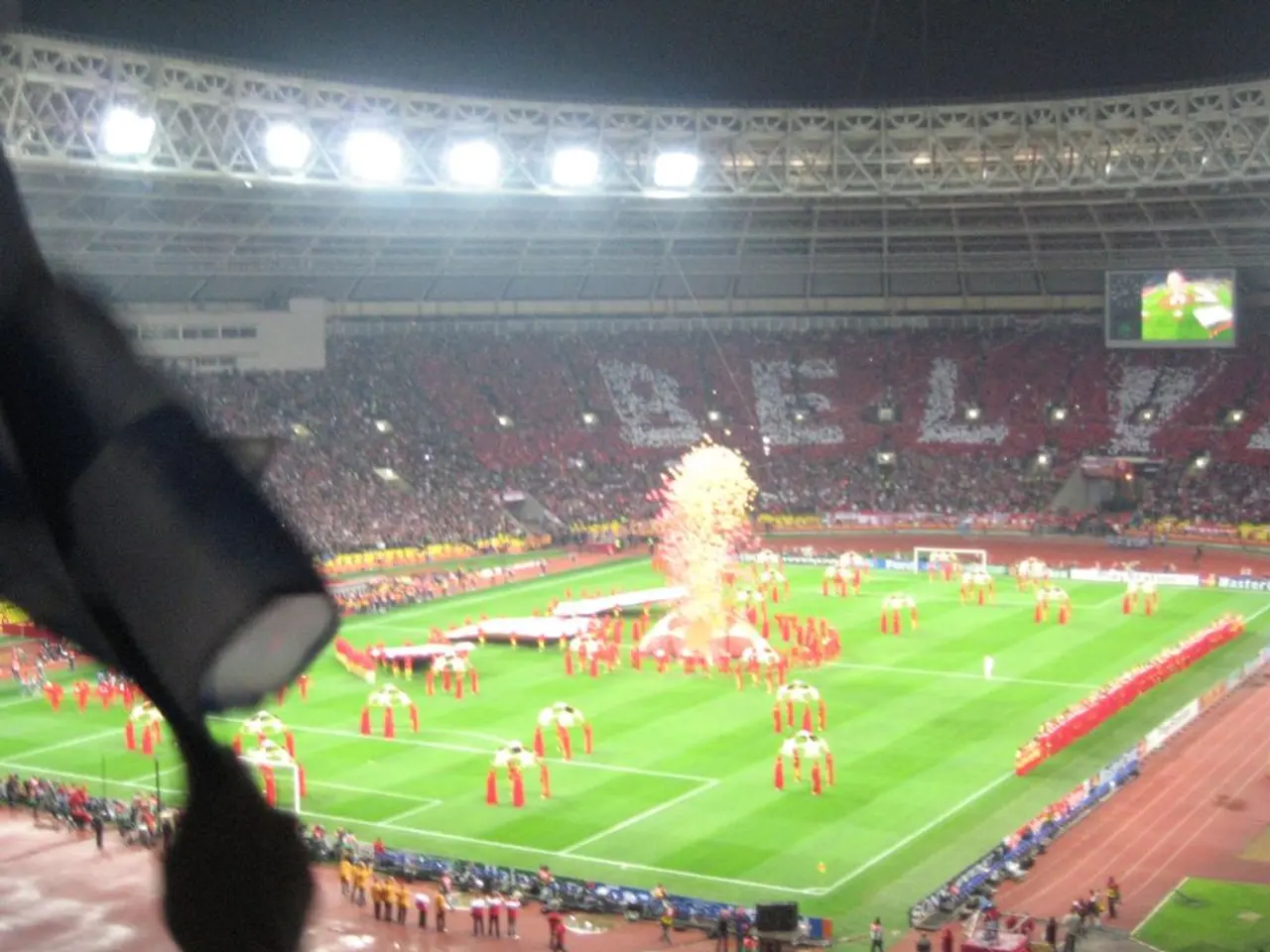Eve of Ukraine War Anniversary: Putin Discusses Enhancing Nuclear Capabilities
In a bold move, Russia's political bigwigs are cranking up the heat on global security by propelling their nuclear arsenal into the future. Vladimir Putin, the Russian President, announced on Thursday, a day before his Ukraine invasion anniversary, that Russia will boost its nuclear might with Sarmat ICBMs and other advanced missile systems—breaking the ice on nuclear arms talks with the US.
Speaking on Defender of the Fatherland Day, Putin declared that "as before, we will pay increased attention to reinforcing the nuclear triad." The triad refers to land-based, sea-based, and air-launched nuclear missiles. For the first time this year, Russia will deploy Sarmat intercontinental ballistic missile systems, a tool capable of bombarding multiple nuclear warheads, he added.
Putin also promised to amplify automation of air-based hypersonic Kinzhal systems and the commencement of mass supplies of sea-based Zircon hypersonic missiles. The Kinzhal is an air-launched hypersonic missile that can be equipped with nuclear or conventional warheads, reportedly operational, and integrated into Russia's military posture. The Zircon, on the other hand, is a sea-launched hypersonic cruise missile, capable of striking naval and land targets at high speeds, making it a formidable adversary for existing defense systems.
Russia is set to kick off armed forces exercises with China in South Africa on Friday, sending a frigate equipped with the hypersonic missiles for good measure. In response, US President Joe Biden warned that suspending the New START treaty (a key arms control deal between the US and Russia) was a "big mistake" but hastily added that he didn't believe Putin was considering the use of nuclear weapons.
However, top Russian defense officials claimed that Moscow would adhere to agreed limitations on nuclear missiles and continue to inform the US about any changes in their deployments. The Kremlin considers NATO, which could potentially include Sweden and Finland, as an existential threat for Russia, exacerbating the ongoing tensions in Ukraine—the largest land dispute in Europe since World War 2.
The escalating arms race between Russia and Western powers risks triggering an unforeseen arms race that could destabilize global security. Ukraine's military reported that cities, like Bakhmut and Avdiivka, are under constant heavy shelling, reflecting Russia's determination to gain a strategic advantage in the region. It remains to be seen how the global community will respond to Russia's aggression and subsequent military modernization efforts.
The increase in nuclear armaments by Russia, as announced by Putin, falls under the category of general news and war-and-conflicts, as it pertains to a boost in Russia's nuclear triad and the deployment of advanced missile systems like Sarmat and Zircon. Additionally, the promise of automation for air-based Kinzhal systems and the commencement of mass supplies of sea-based Zircon hypersonic missiles highlights Russia's political efforts in enhancing its military capabilities, which also falls under general news and political discussion.






